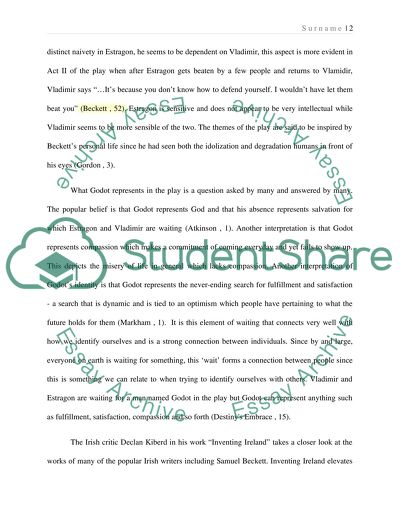Cite this document
(“Waiting for Godot by Samuel Beckett Research Paper”, n.d.)
Retrieved from https://studentshare.org/literature/1431756-waiting-for-godot-by-samuel-beckett
Retrieved from https://studentshare.org/literature/1431756-waiting-for-godot-by-samuel-beckett
(Waiting for Godot by Samuel Beckett Research Paper)
https://studentshare.org/literature/1431756-waiting-for-godot-by-samuel-beckett.
https://studentshare.org/literature/1431756-waiting-for-godot-by-samuel-beckett.
“Waiting for Godot by Samuel Beckett Research Paper”, n.d. https://studentshare.org/literature/1431756-waiting-for-godot-by-samuel-beckett.


